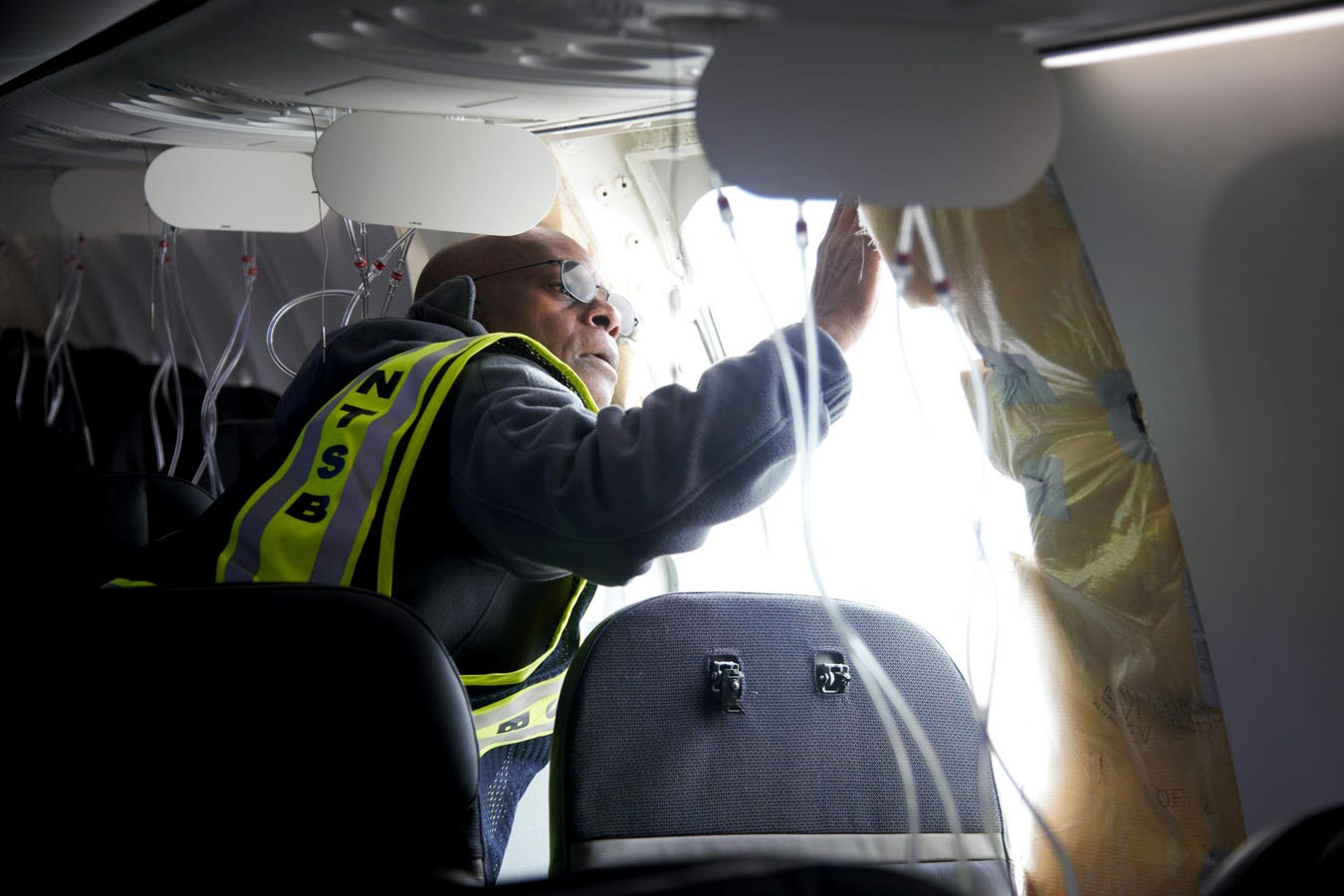Nobody wants to get on a plane they believe is unsafe. A commercial aerospace company, must have a reputation for safety and reliability. That is paramount. Yet over the last several years, Boeing, one of the world’s largest airplane manufacturers, has hit some serious turbulence. Repeated manufacturing and safety failures have damaged the confidence of airlines, shareholders, and the public.
The most recent versions of Beoing’s workhorse 737 Max planes have had serious quality control problems. From deadly crashes in 2018 and 2019, to the recent debacle with loose bolts and a door being torn off during an Alaska airlines flight, the company’s reputation for safety has taken a nosedive. Reports indicate that there were problems with paperwork and slipshod work which led to the Alaska Airlines plane being delivered without the key bolts. The plane was literally missing parts that hold it together.
As scrutiny of Boeing’s planes has intensified in the aftermath of the Alaska Airlines incident, new problems have come to light. Recent reports indicate that 50 planes are being reworked on the assembly line because of misdrilled holes.
Now, shareholders should seriously consider whether they want to remain aboard. Boeing’s stock has fallen from a five year high of $440 a share in March 2019 to $205 today, a drop of over 50%, even as competitor Airbus has risen 20% from $32 per share in March 2019 to $40 per share.
For any company, in any industry, their number one priority has to be their clients. If you build airplanes, your clients are airlines, and their bottom line depends on being able to sell tickets to passengers and fill planes with cargo. Doing that successfully, and building up customer loyalty, means proving again and again that you can get people where they are going on time and without life threatening safety issues. This is a reasonable expectation. Boeing had not only deadly crashes but additional safety incidents that significantly impacted customer and shareholder trust.
When the worst does happen, the airline’s reputation is on the line just as much as the manufacturer’s is. They are intricately connected.
What this means is that while the problems with Boeing’s planes may not be the fault of airlines, passengers won’t make that distinction. Instead, if they believe that an airline is operating poorly built planes, they will choose competitors.
For airlines, persistent problems with a manufacturer’s planes are an existential risk, driving away potential business and devaluing their brands and stock prices.
It’s no wonder, then, that in the wake of the latest problems with the 737 Max 9, the CEOs of some of Boeing’s biggest customers have been vocal in their calls for the company to make serious changes.
Alaska Airlines CEO Ben Minicucci said he was “angry” and that “my demand on Boeing is, what are they going to do to improve their quality programs in-house?”
United Airlines’ CEO Scott Kirby didn’t pull any punches either, calling the latest trouble “probably the straw that broke the camel’s back for us,” and indicating the company was preparing a plan that doesn’t include Boeing’s next version of the plane, the 737 Max 10.
It’s reasonable to assume now that airlines are going to be less aggressive buying from Boeing until they’re certain that the quality control issues have been resolved. The fact that there have been problems over the course of several years—and more seem to emerge every day—indicates the company has not yet dealt with its quality control problems adequately.
But even more troubling is where the oversight is lacking. Is it a matter of outright lack of consciousness, accountability or ethics?
While Boeing isn’t in danger of going out of business anytime soon, it does put CEO Dave Calhoun in the hot seat. He was appointed to the role in the wake of the 2018 and 2019 crashes to figure out what went wrong. That’s clearly still a work in progress! Boeing’s sliding stock price indicates that, so far, he’s failed to reassure the market.
To turn things around, Calhoun must clearly and continually communicate—with his customers and with the public—about the actions the company is taking to fix things. Now, Calhoun has to isolate the origin of the problems—whether it’s a problem with suppliers or some other issue like hiring and training. Then if he doesn’t have the right people in place—with the right skill sets to turn things around—then he needs to fix that and give great thought to the process.
Three years ago, when the initial problems with the 737 Max emerged, I looked at Boeing’s place in my portfolio. It is a great American company, an icon, that’s been around for a long time. But these are serious problems, and it’s going to take a while to fix them. Instead of hoping that would happen, my team asked why we wouldn’t we own General Dynamics or Raytheon or Lockheed Martin instead.
Every investor and traveler should be engaging in the same calculus. Until Boeing shores up its integrity, its reputation for quality product remains tarnished. The public perception that Boeing planes are not safe is as dangerous to the company as the aircraft are to its airlines and passengers.
Read the full article here





